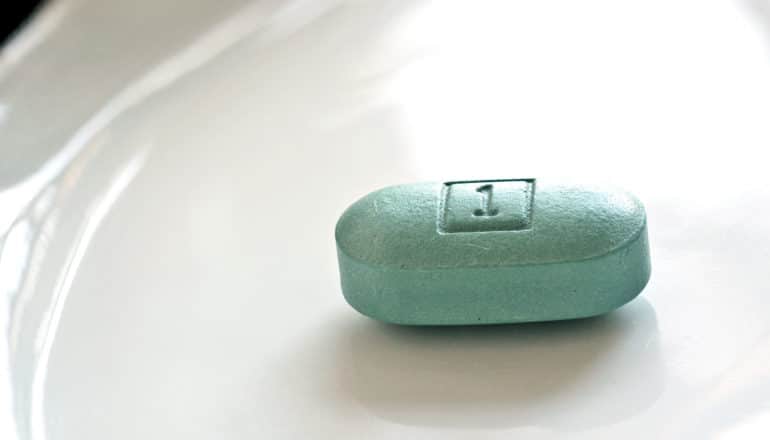
Domestic violence and illicit drug use plummeted among women who realized they could live decades longer than they’d expected because of a new HIV treatment, according to a new study.
The introduction of the medical treatment called Highly Active Anti-Retroviral Therapy (HAART) dramatically improved the health and longevity of HIV-positive women in the study.
The women’s lives subsequently improved dramatically in two other ways: They experienced 15% less domestic violence, and their drug abuse plunged by 15-20%.
The paper, which will appear the Journal of Human Resources, is the first study to show that interventions that improve women’s health and longevity can reduce both domestic violence and illicit drug use, the authors write.
The women’s improvement also could lead to increased labor market productivity, the authors point out.
“Innovations in health care can have indirect effects on things that you may not immediately expect,” says coauthor Barton H. Hamilton, a professor of economics, management and entrepreneurship at Olin Business School.
30 more years with HIV treatment
Participants in the study were recruited from HIV primary care clinics, hospital-based programs, research programs, community outreach sites, women’s support groups, drug rehabilitation programs, HIV testing sites, and referrals from enrolled participants. The study began in 1994, and researchers added a second cohort to the sample in 2001-02.
“Suppose all of a sudden somebody tells you that you’re going to live for another 30 years instead of expecting that you’ll die in the next five years? What are you going to do?” Hamilton asks.
“Now, all of a sudden, you have a lot more health capital than you ever thought you had. And how does that affect the kind of decisions and investments you make?”
One decision might be to get out of an abusive relationship. Another: to stop using cocaine, heroin, and other drugs.
Relying on surveys and a series of robustness checks, the research focused on women who were HIV-positive but not yet symptomatic. For the women, the treatment known as HAART had no immediate impact on symptoms. But it did improve their expected health and lengthened their expected lifetimes.
“This incentivized them to make costly upfront investments with future payoffs,” Hamilton says. “We treat the avoidance of domestic violence, including leaving an abusive relationship, as such an investment.”
Domestic violence’s cost
The annual cost of domestic violence—including direct medical expenditures and losses to productivity—is estimated at $5.8 billion. The authors note that $5.8 billion is probably “a gross underestimation” because it does not include costs to the justice system or social services.
“We view health as a form of human capital that not only increases longevity, but also improves the quality of life and increases labor market productivity,” Hamilton says.
The researchers used data from a longitudinal study, the Women’s Intra-Agency HIV Study, which provided rich information on health, sociodemographic characteristics, domestic violence, and illicit drug use.
Longer life, more choices
HAART enhanced the women’s expected well-being and economic resources, such as income, improving their options outside of violent partnerships.
Following similar logic, the researchers assessed the effect of HAART on another investment with upfront costs and future payoffs: reducing the use of illicit drugs. Upfront costs include withdrawal symptoms and depression, while benefits include better future health and fewer barriers to employment.
“In economics, we don’t have too many situations where we can study such a big shock—in the sense of now you’re going to get an extra 30 years of life,” Hamilton says.
HAART transformed HIV infection from a virtual death sentence into a manageable, chronic condition, reducing mortality rates by more than 80% within two years of its introduction.
“What we saw was a pretty drastic change in incentives,” the biggest one being a chance for a longer life, Hamilton says. “And, as a consequence, we saw a pretty significant response.”
Additional coauthors are from Washington University in St. Louis, Johns Hopkins University, the University of Wisconsin-Madison, Rush University, and the State University of New York.
Source: Washington University in St. Louis
The post How better HIV treatment cut drug use and domestic violence appeared first on Futurity.
from Futurity https://ift.tt/2OCpRgU
No comments:
Post a Comment